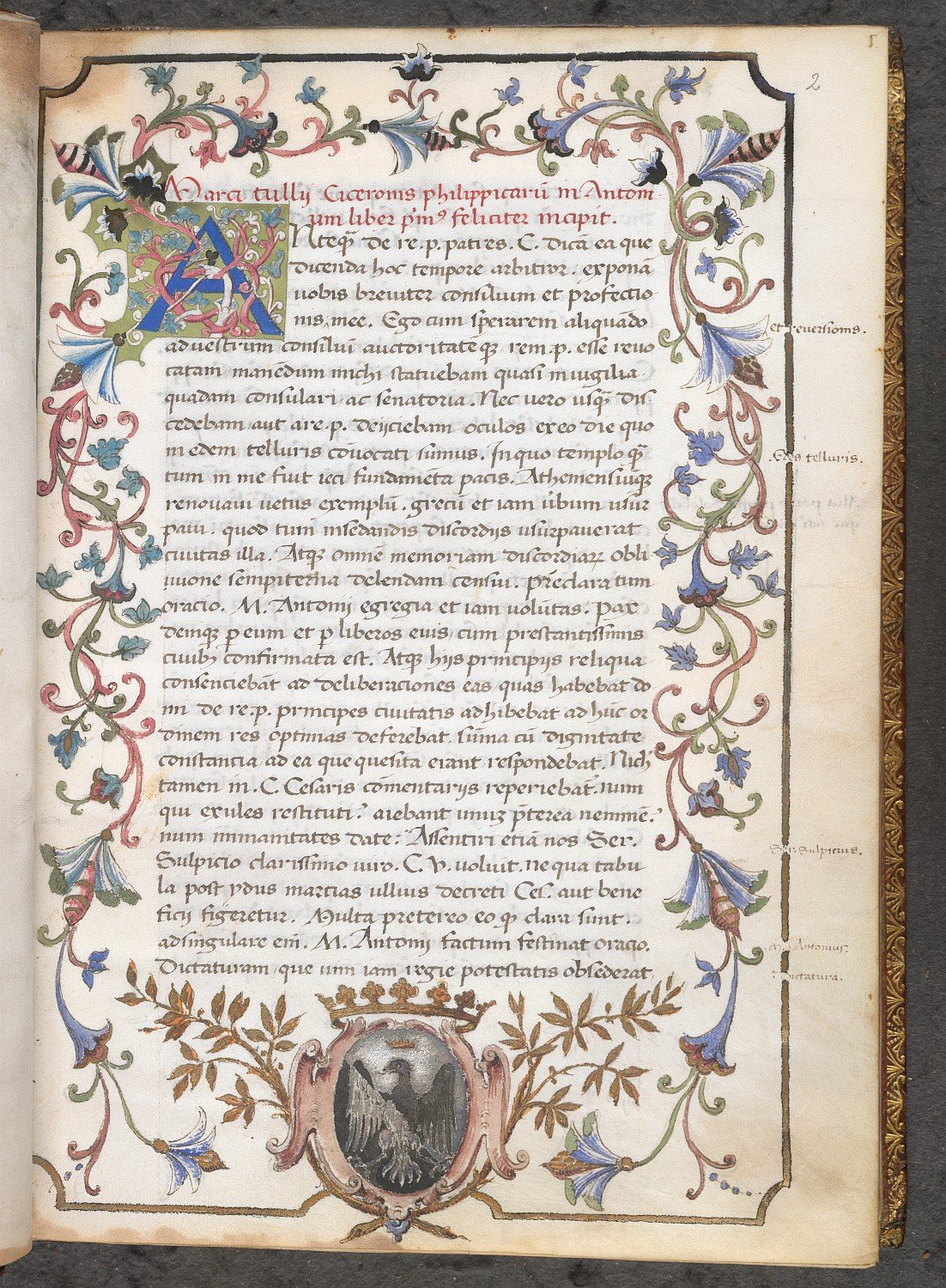Philippic on:
[Wikipedia]
[Google]
[Amazon]
 A philippic () is a fiery, damning speech, or tirade, delivered to condemn a particular political actor. The term is most famously associated with three noted orators of the ancient world: Demosthenes of
A philippic () is a fiery, damning speech, or tirade, delivered to condemn a particular political actor. The term is most famously associated with three noted orators of the ancient world: Demosthenes of
 Cicero consciously modeled his own condemnations of Mark Antony on Demosthenes's speeches, and if the correspondence between
Cicero consciously modeled his own condemnations of Mark Antony on Demosthenes's speeches, and if the correspondence between
 A philippic () is a fiery, damning speech, or tirade, delivered to condemn a particular political actor. The term is most famously associated with three noted orators of the ancient world: Demosthenes of
A philippic () is a fiery, damning speech, or tirade, delivered to condemn a particular political actor. The term is most famously associated with three noted orators of the ancient world: Demosthenes of ancient Athens
Athens is one of the List of oldest continuously inhabited cities, oldest named cities in the world, having been continuously inhabited for perhaps 5,000 years. Situated in southern Europe, Athens became the leading city of ancient Greece in t ...
, Cato the Elder and Cicero of ancient Rome
In modern historiography, ancient Rome is the Roman people, Roman civilisation from the founding of Rome, founding of the Italian city of Rome in the 8th century BC to the Fall of the Western Roman Empire, collapse of the Western Roman Em ...
. The term itself is derived from Demosthenes's speeches in 351 BC denouncing the imperialist ambitions of Philip of Macedon, which later came to be known as ''The Philippics''.
Greece
The original "philippics" were delivered by Demosthenes, anAthenian
Athens ( ) is the Capital city, capital and List of cities and towns in Greece, largest city of Greece. A significant coastal urban area in the Mediterranean, Athens is also the capital of the Attica (region), Attica region and is the southe ...
statesman and orator
An orator, or oratist, is a public speaker, especially one who is eloquent or skilled.
Etymology
Recorded in English c. 1374, with a meaning of "one who pleads or argues for a cause", from Anglo-French ''oratour'', Old French ''orateur'' (14 ...
in Classical Greece, who delivered several attacks on Philip II of Macedon
Philip II of Macedon (; 382 BC – October 336 BC) was the king (''basileus'') of the ancient kingdom of Macedonia (ancient kingdom), Macedonia from 359 BC until his death in 336 BC. He was a member of the Argead dynasty, founders of the ...
in the 4th century BC. Experts have questioned his intentions behind the philippics.
A First, Second, and Third Philippic
The "Third Philippic" was delivered by the prominent Athenian statesman and orator, Demosthenes, in 341 BC. It constitutes the third of the four philippics.
Historical background
In 343 BC, the Macedonian arms were carried across Epirus and a ye ...
have been ascribed to Demosthenes. A Fourth Philippic is also extant, but is of disputed authorship.
Rome
Cato the Elder is also associated with the concept of the Philippic. Just as Demosthenes had been warning of the militaristic intentions of Philip of Macedon, so Cato warned the Romans of the potential threat posed by the Carthaginians. Plutarch recorded a common ending to Cato's speeches: "Carthago delenda est" or 'Carthage must be destroyed'. Cicero consciously modeled his own condemnations of Mark Antony on Demosthenes's speeches, and if the correspondence between
Cicero consciously modeled his own condemnations of Mark Antony on Demosthenes's speeches, and if the correspondence between Marcus Junius Brutus the Younger
Marcus Junius Brutus (; ; 85 BC – 23 October 42 BC) was a Roman politician, orator, and the most famous of assassination of Julius Caesar, the assassins of Julius Caesar. After being adopted by Quintus Servilius Caepio (adoptive father of B ...
and Cicero is genuine d Brut. ii 3.4, ii 4.2 at least the fifth and seventh speeches were referred to as the '' Philippicae'' in Cicero's time. They were also called the Antonian Orations by Latin author and grammarian Aulus Gellius.
After the death of Caesar, Cicero privately expressed his regret that the murderers of Caesar had not included Antony in their plot, and he bent his efforts to the discrediting of Antony. Cicero even promoted illegal action, such as legitimatizing the private army of Gaius Octavius, or Octavian. In all, Cicero delivered fourteen Philippics in less than two years. Cicero's focus on Antony, however, contributed to his downfall as he failed to recognize the threat of Octavian to his republican ideal.
Cicero's attacks on Antony were neither forgiven nor forgotten, with the result that Cicero was proscribed and killed in 43 BC. His head and hands were publicly displayed in the Roman Forum to discourage any who would oppose the new Triumvirate of Octavian, Mark Antony and Lepidus.
According to Roman historian Tacitus, the ''Philippicae'', together with the '' Pro Milone'', '' In Catilinam'', and '' In Verrem'', made Cicero famous, and much of his political career sprang from the effect of these works. Others would have it that the '' Pro Ligario'', in which Cicero defends Ligarius before Caesar, was the vehicle of his renown.
See also
* Jeremiad (dolorous tirade, literary) * PolemicReferences
* * Speeches by type {{Lit-stub